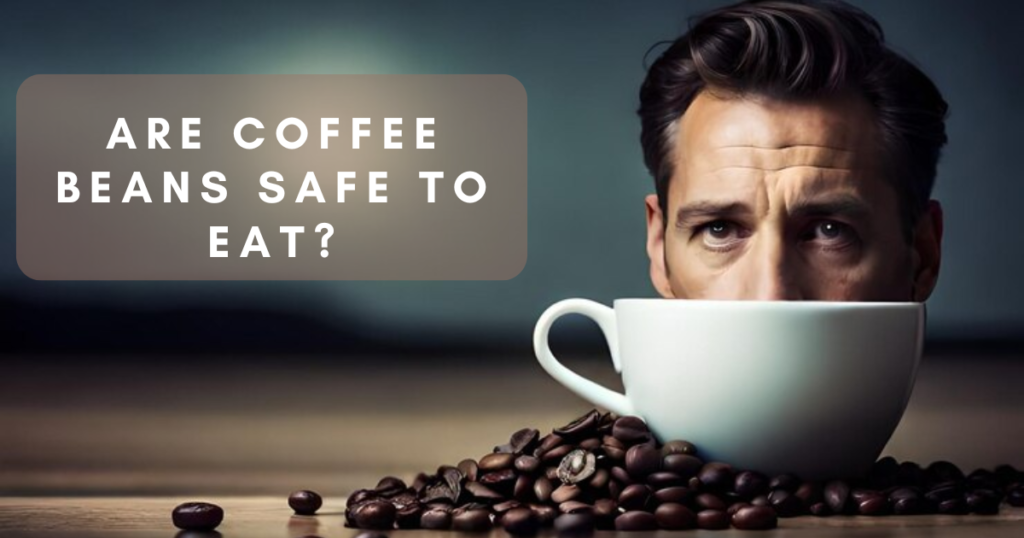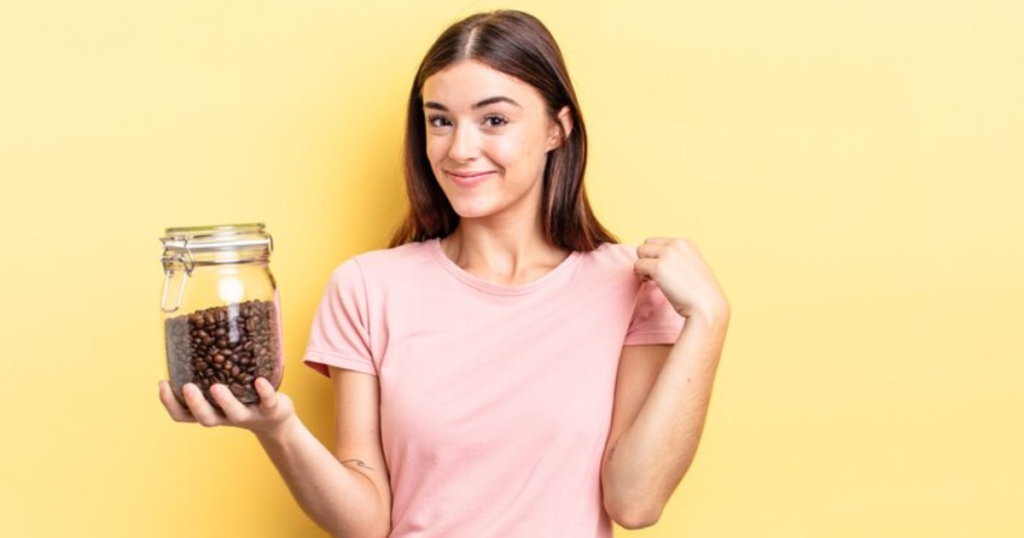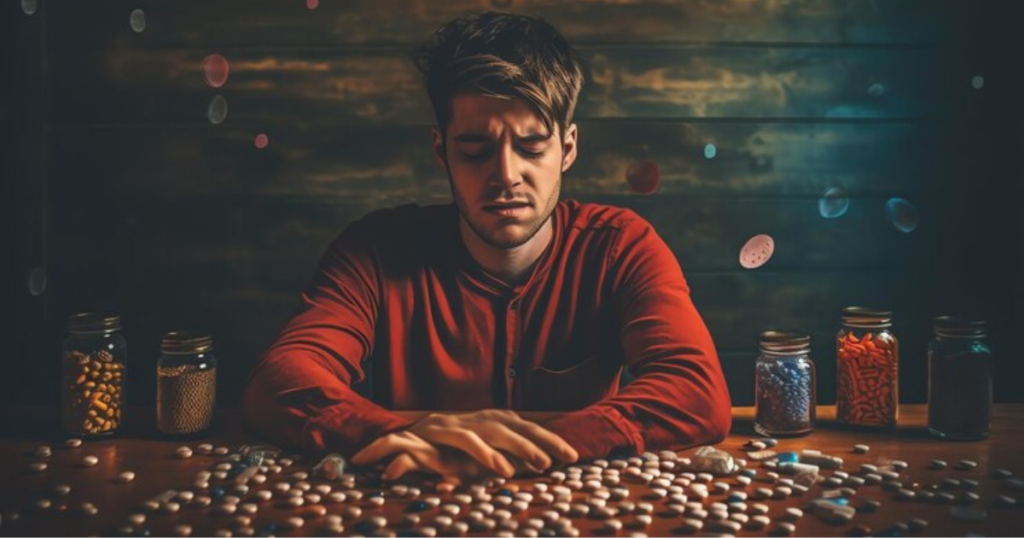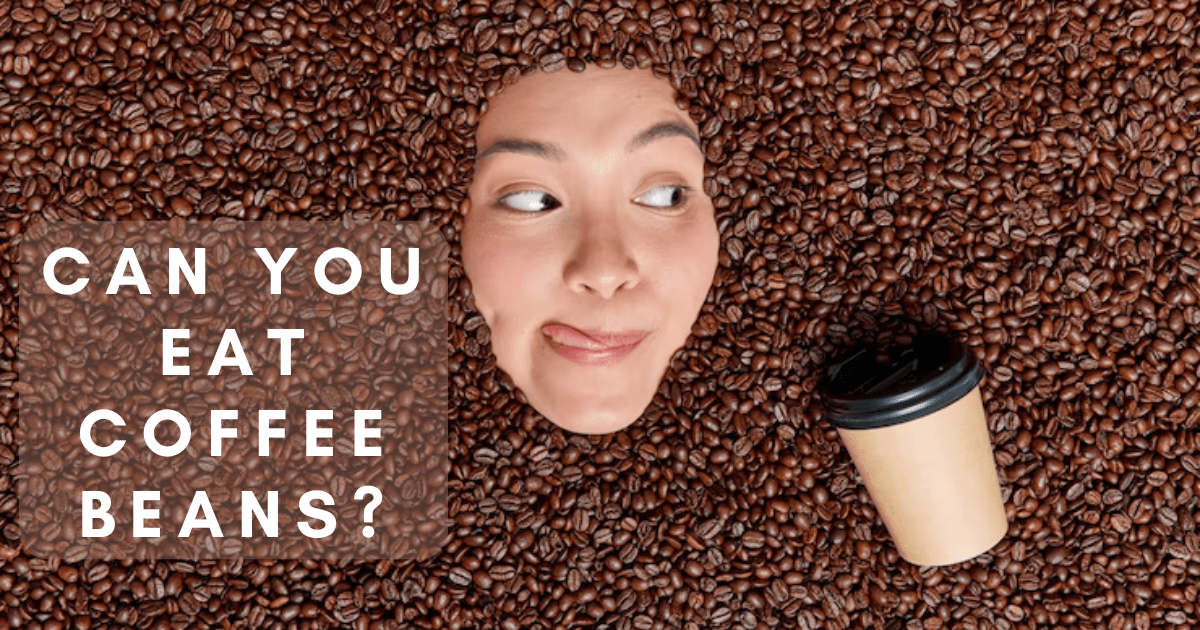Lots of people like to drink coffee in the morning because it smells good and tastes strong. But did you ever think about eating coffee beans instead? Let’s think about whether that’s a good idea and what we need to think about if we want to eat coffee beans.
Types of Coffee Beans
There are many types of coffee beans, each with an unique taste profile and attributes. The two most popular varieties are:
Arabica:
Arabica beans are the most often consumed form of coffee bean. They are recognized for their smooth, mild flavor, which includes hints of sweetness and acidity. Arabica beans are grown at higher altitudes in milder climes, including Central and South America, Africa, and portions of Asia.
Robusta:
Robusta beans have a harsher, more bitter flavor than Arabica beans. They also have more caffeine. Robusta beans are commonly utilized in espresso mixes and instant coffee due to their strong flavor and high caffeine level. They are mainly grown in warmer areas and at lower altitudes, primarily in Africa and Southeast Asia..
Edible Nature of Coffee Beans
Yes, you can eat coffee beans. Coffee beans are edible both raw and roasted. However, raw and roasted beans have very different tastes and textures. Raw coffee beans have a grassy, earthy flavor and a chewy texture, but roasted coffee beans are crisp and have a stronger coffee flavor.
Nutritional Value of Coffee Beans
Coffee beans are consumed more for their flavor and caffeine content than for their nutritional benefits. However, they contain some nutrients. Here’s a breakdown of the nutritional value of coffee beans per 100 grams:
- Calories: Coffee beans are relatively low in calories, with around 300 calories per 100 grams.
- Protein: Coffee beans contain a moderate amount of protein, typically around 12 grams per 100 grams.
- Fat: Coffee beans contain some fat, usually around 15 grams per 100 grams. The fat content can vary depending on factors such as the type of bean and the roasting process.
- Carbohydrates: Coffee beans are low in carbohydrates, with only about 50 grams per 100 grams.
- Fiber: Coffee beans contain a small amount of dietary fiber, approximately 10 grams per 100 grams.
- Vitamins and minerals: Coffee beans contain small amounts of vitamins and minerals, including riboflavin (vitamin B2), niacin (vitamin B3), magnesium, and potassium.
Are Coffee Beans Safe To Eat?
Yes, coffee beans are safe to eat, but they are usually roasted before eating. Roasting coffee beans boosts their taste and smell, making them more appealing for eating. Some people prefer to eat coffee beans raw or unroasted.
But remember, coffee beans have caffeine in them, which can make your heart beat faster, make it hard to sleep, make you feel jittery, or upset your stomach if you have too much. So, it’s better to eat them in small amounts, whether they’re roasted or not, so you don’t get too much caffeine.
Also, be careful with flavored or covered coffee beans because they might have other stuff added to them that could be bad for you. So, it’s smart to check what’s in them before you eat them.

What Are The Benefits of Eating Coffee Beans?
While most people drink coffee, ingesting coffee beans may also provide health benefits. Here are some potential benefits of consuming coffee beans.
- Source of antioxidants: Coffee beans are a rich source of antioxidants, such as chlorogenic acid, which can help protect cells from free radical damage. Antioxidants have been linked to a variety of health benefits, including a lower risk of chronic illnesses such as heart disease, cancer, and diabetes.
- Increased energy and alertness: Caffeine, a stimulant found naturally in coffee beans, can help raise energy and mental alertness. Consuming coffee beans can deliver a fast energy boost, similar to drinking coffee.
- Mood enhancement: Caffeine has been found to increase mood and cognitive function by inhibiting the neurotransmitter adenosine, which promotes relaxation and sleep. Eating coffee beans may improve your mood and boost emotions of well-being.
- Weight control: According to some research, caffeine can enhance metabolism and fat burning, thereby benefiting in weight reduction or management attempts. Consuming coffee beans may provide these benefits, however moderation is necessary due to the high calorie content of coffee beans.
- Convenience: Eating coffee beans allows you to experience the flavor and benefits of coffee on the move without the need for brewing equipment or preparation time.
Does Eating Coffee Beans Help You Lose Weight?
Eating coffee beans alone won’t make you lose weight quickly. Coffee beans have stuff like caffeine that might make you less hungry and speed up how fast you burn energy, but it’s not a big effect and doesn’t last long.
But if you have some coffee or caffeine in your diet sometimes, it might help a bit with losing weight. Caffeine can make your body burn a little more energy and fat, and it can give you a short burst of energy to help you do more exercise and burn more calories.
But having too much caffeine can make you feel shaky, make it hard to sleep, make your heart beat fast, or upset your stomach. Also, just eating coffee beans without changing other things like what you eat and how much you move probably won’t make a big difference in your weight.

Possible Risks and Side Effects of Eating Coffee Beans
Eating coffee beans can have various possible hazards and adverse effects, especially when consumed in large quantities:
- Digestive Issues: Coffee beans contain a lot of caffeine, which can accelerate the formation of stomach acid and cause gastrointestinal discomfort such acid reflux, heartburn, and upset stomach.
- Insomnia and interrupted Sleep: Consuming significant amounts of coffee beans, especially in the evening or near bedtime, can disrupt sleep patterns and result in insomnia or interrupted sleep.
- Increased Heart Rate and Blood Pressure: Caffeine in coffee beans can briefly raise heart rate and blood pressure, particularly in people who are sensitive to caffeine or drink high amounts.
- Anxiety and Jitters: Excessive caffeine consumption from coffee beans can cause feelings of anxiety, uneasiness, and jitteriness, especially in people who are not used to high caffeine use.
- Caffeine dependency and withdrawal symptoms: Regular coffee use can develop to caffeine dependence, and abrupt reduction or cessation of caffeine intake can cause withdrawal symptoms such as headaches, weariness, irritability, and problems concentrating.
- Increased Risk of Osteoporosis: According to some study, excessive coffee consumption may interfere with calcium absorption, increasing the risk of osteoporosis, particularly in persons with insufficient calcium intake.
- Toxicity Risk: While drinking exceptionally large quantities of coffee beans is required to achieve toxic levels of caffeine, excessive consumption can still result in caffeine overdose symptoms such as rapid heartbeat, nausea, vomiting, seizures, and, in severe cases, death.

Is It Unhealthy To Eat Roasted Coffee Beans?
Eating roasted coffee beans in small amounts is usually okay for most people and not bad for you. Roasted coffee beans have good stuff in them like antioxidants and polyphenols that can help keep you healthy.
But, you need to be careful because roasted coffee beans have caffeine in them. Too much caffeine can make your stomach feel funny, make it hard to sleep, make your heart beat faster, make you feel worried, and make you want more and more.
Also, roasted coffee beans might have a chemical called acrylamide, which forms when they’re roasted. It might be a little bit bad for you, but not too much if you don’t eat too many beans. It’s best to eat them in moderation, along with other healthy foods.
5 Best Ways to Eat Coffee Beans
1. Coffee Bean Chocolate Bark
Coffee bean chocolate bark is a yummy snack that mixes dark chocolate with coffee beans. First, we melt dark chocolate on the stove. Then, we mix in coffee beans until they’re covered in chocolate. After that, we spread the mix on a tray lined with parchment paper and put it in the fridge until it’s hard. Finally, we break it into pieces and eat it! It’s delicious because it has both chocolate and coffee flavors.
2. Espresso Rubbed Steak
You know how people use coffee beans to make tasty drinks? Well, you can also use them to make meat taste yummy! Instead of just drinking coffee, you can put crushed coffee beans on steak to make it really tasty.
First, you mix the crushed coffee beans with other spices like garlic powder, paprika, and black pepper. Then, you rub this mixture all over the steak so it’s covered in flavor. After that, you cook the steak on a grill until it’s just right for you to eat. When it’s done, you’ll taste the delicious mix of coffee and spices on the meat.
3. Coffee Bean Ice Cream
Coffee bean ice cream is like a yummy twist on regular ice cream. Instead of just plain flavor, it has the taste of coffee beans, which makes it really special. To make it, you mix warm milk and cream with coffee beans to get the coffee flavor.
After a while, you take out the coffee beans and put the mix in an ice cream maker until it’s thick and creamy. Then you can eat it in a bowl or cone and enjoy the creamy, coffee goodness!
4. Coffee Bean Salad Dressing
Coffee bean salad dressing is a special and tasty sauce for your salad. It mixes the sourness of coffee beans, the tanginess of vinegar, and the sweetness of honey. When you make it, you grind coffee beans very finely, then mix them with olive oil, balsamic vinegar, honey, and Dijon mustard. Pour this sauce on your salad, mix it well, and add some extra coffee beans for a yummy crunch!
5. Coffee Bean Infused Cocktails
You know how coffee tastes really good, right? Well, guess what? You can make your drinks even tastier by adding coffee beans to them! When you put coffee beans into alcohol like vodka, rum, or whiskey, it makes the drinks smell and taste even better.
All you have to do is put the coffee beans in the alcohol and wait a few days. Then, you can use this special alcohol to make cool drinks like espresso martinis or coffee old fashioneds. You can even put some coffee beans on top of your drink to make it look fancy and taste yummy!
More to Read: Is Hint Water Bad for Your Kidneys?
Conclusion
So, yes, you can eat coffee beans, and they might make you healthier and more energetic because they have good stuff called antioxidants. But remember, don’t eat too many, and watch out for things like feeling too jittery from too much caffeine. Whether you like them plain, roasted, or covered in chocolate, there are lots of yummy ways to enjoy them as snacks.
People Also Ask
Can you eat coffee beans instead of drinking coffee?
Yes, you can consume coffee beans instead of drinking coffee, but they have a strong and bitter flavor since they are not roasted and ground the same way coffee is. Some individuals prefer eating on them for a short caffeine boost or because of their distinct flavor.
Are coffee beans safe to eat?
Yes, coffee beans are healthy to eat in balance. However, consuming too many coffee beans at once can cause undesirable side effects such as jitteriness, upset stomach, and difficulty sleeping due to the high caffeine concentration.
What happens if you eat raw coffee beans?
Eating raw coffee beans can be bitter and rough since they have not been roasted. While they are safe to consume, they may not be particularly tasty. Roasting coffee beans enhances their flavor and scent, which is why the majority of people prefer to drink roasted coffee.
Can eating coffee beans give you energy?
Yes, coffee beans can provide energy since they contain caffeine, a natural stimulant. Caffeine can improve alertness and briefly raise energy levels. However, excessive caffeine consumption might result in unpleasant side effects such as jitteriness and headaches.
How many coffee beans can I eat in a day?
The number of coffee beans you may eat each day is determined by your caffeine tolerance and sensitivity. It is generally recommended that you consume no more than 400 mg of caffeine each day, which is equivalent to four or five cups of coffee. So, if you’re snacking on coffee beans, keep them in moderation to avoid taking too much caffeine.









Leave a Reply